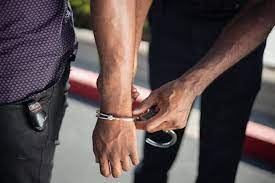The role of security guards in maintaining order and ensuring the safety of individuals and property has become increasingly crucial in today's society. As these professionals fulfill their responsibilities, questions often arise regarding the extent of their authority, particularly when it comes to making arrests. In this exploration, we will delve into the legal framework surrounding the powers of security guards, analyzing the circumstances under which they can or cannot make arrests.
Legal Basis for Security Guard Authority:
Security guards are not sworn law enforcement officers, and their authority differs significantly from that of police officers. Instead, security guards derive their authority from private entities that employ them to protect specific premises or assets. Consequently, their powers are limited to the scope of their contractual obligations and the laws governing citizens' arrests.
Citizen's Arrest:
The concept of citizen's arrest, rooted in common law, grants ordinary individuals the authority to detain someone whom they witness committing a felony or a breach of the peace. This authority extends to security guards, but it is important to note that the circumstances under which a citizen's arrest is permissible vary by jurisdiction.
Generally, for a citizen's arrest to be lawful, the security guard must witness the commission of a felony or, in some cases, a misdemeanor. The use of force during a citizen's arrest is typically permitted only if the individual being detained poses an immediate threat to others or if there is a risk of escape before law enforcement arrives.
Private Property and Trespassing:
Security guards often work on private property, and their authority is closely tied to the rights of the property owner or employer. In cases where an individual is trespassing or engaging in illegal activities on the premises, security guards may have the authority to detain the person until law enforcement arrives.
However, it's essential to understand that the use of force in such situations should be proportionate and reasonable. Excessive force may expose security guards and the entities they represent to legal liabilities. Read more about Can security guards arrest you
Use of Force and Liability:
While security guards may have the right to make a citizen's arrest, the use of force is subject to strict guidelines. Excessive force can lead to legal repercussions for the security guard and the organization employing them. It is crucial for security personnel to undergo training that emphasizes de-escalation techniques and the appropriate use of force to minimize the risk of legal issues.
Moreover, security guards should be familiar with the laws specific to their jurisdiction, as regulations regarding citizen's arrests and the use of force can vary significantly from one location to another.
Collaboration with Law Enforcement:
Security guards are not a substitute for law enforcement, and their primary responsibility is to observe and report incidents. In many cases, security personnel are trained to contact local law enforcement rather than attempting to make an arrest themselves. The collaborative relationship between security guards and the police is essential for maintaining public safety and ensuring that the legal process is followed appropriately.
Legal Constraints on Security Guards:
Despite their role in maintaining order and security, security guards must operate within the boundaries of the law. Some jurisdictions have strict regulations regarding the qualifications, training, and conduct of security personnel. Deviating from these guidelines can result in legal consequences for both the individual security guard and the employing organization.
Conclusion:
In conclusion, the authority of security guards to make arrests is rooted in the concept of citizen's arrest, which grants them certain powers under specific circumstances. However, the legality of their actions depends on factors such as the nature of the offense, the jurisdiction, and the proportionality of force used. Security guards play a vital role in safeguarding private property, but it is essential for them to operate within the confines of the law to avoid legal liabilities. Training, awareness of legal regulations, and collaboration with law enforcement are key elements in ensuring that security guards fulfill their responsibilities effectively and lawfully. Visit official website californiasecurityservice.com

